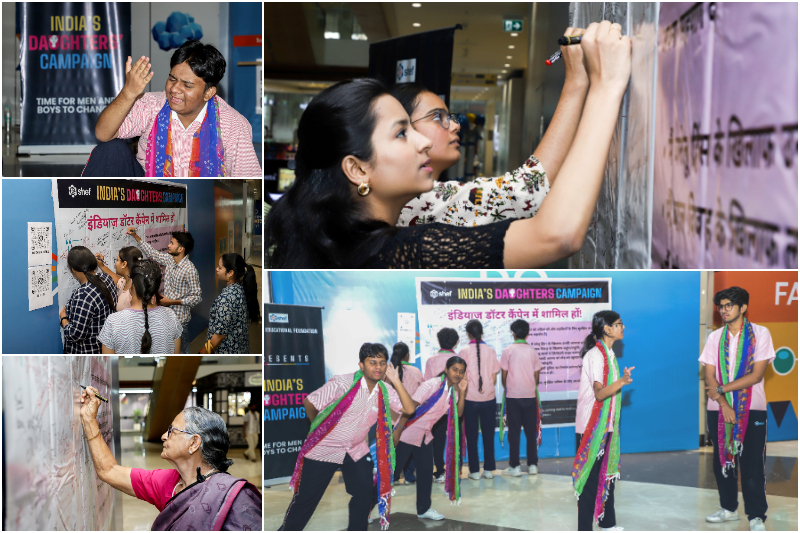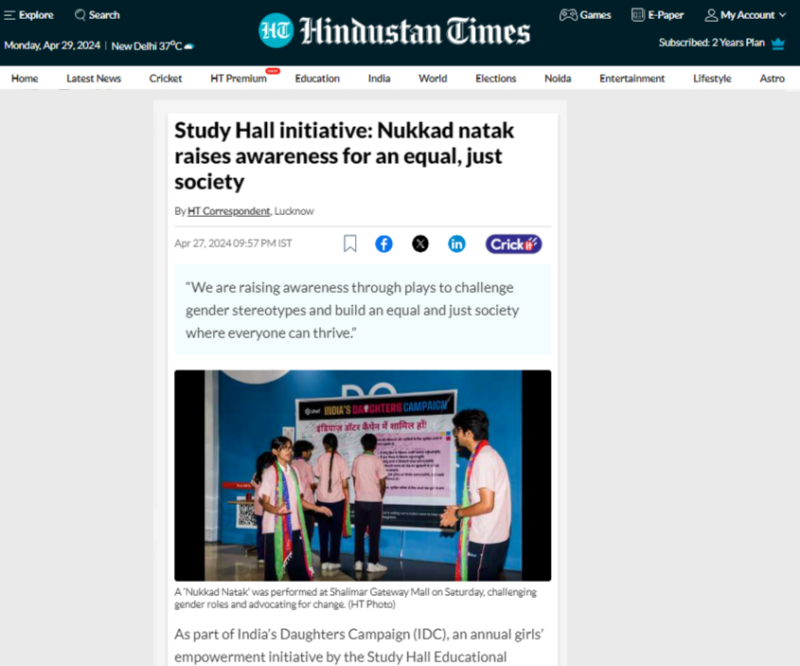
Lucknow: Study Hall children presented a “Nukkad Natak,” themed around challenging gender roles and advocating for change at Shalimar Gateway Mall on Saturday, 28th April. This was carried out as a part of the India’s Daughters Campaign (IDC), an annual girls’ empowerment campaign by Study Hall Educational Foundation (SHEF) that aims to raise awareness around violence against women. The Nukkad natak shed light on sharing responsibilities at home, to create an equal and just world for everyone. Over 150 people were present and the event garnered over 100 signatures on a pledge to end violence against women.
The street play, a cornerstone of the IDC, aims to dismantle gender stereotypes and urge individuals to reconsider their mindsets regarding gender-based discrimination.
“Achieving equality requires the active participation of boys and men,” said Priyanka Saxena, Program Manager IDC at SHEF. “Through this year’s campaign, we aim to mobilize and educate boys and men to become advocates for gender justice.”
Uplabdhi, a student of class 10th at Study Hall said, “We are raising awareness through drama that we need to challenge gender stereotypes and we need to create an equal and just society for everyone to thrive in.”
Bhartendu, teacher at Study Hall said, “Through India’s Daughters Campaign we are raising awareness regarding violence against women and the urgent need to take action against it. We must educate men and boys to build gender lens and sensitivity in order to bring change.”
Recognizing the need for a holistic approach to address gender inequality, the campaign emphasizes the importance of boys and men in the fight against violence against women. While efforts to empower girls and women are crucial, it is equally imperative for boys to challenge patriarchal norms and foster an egalitarian society. Since its inception in 2012, the India’s Daughters Campaign has witnessed remarkable growth, reaching over 1.1 million community members and 232,000 students in its latest edition in 2019. This year, the campaign takes a unique approach by placing boys and men at the forefront of discussions on gender inequality.


 DONATE
DONATE


 Volunteer
Volunteer
 Work With Us
Work With Us
